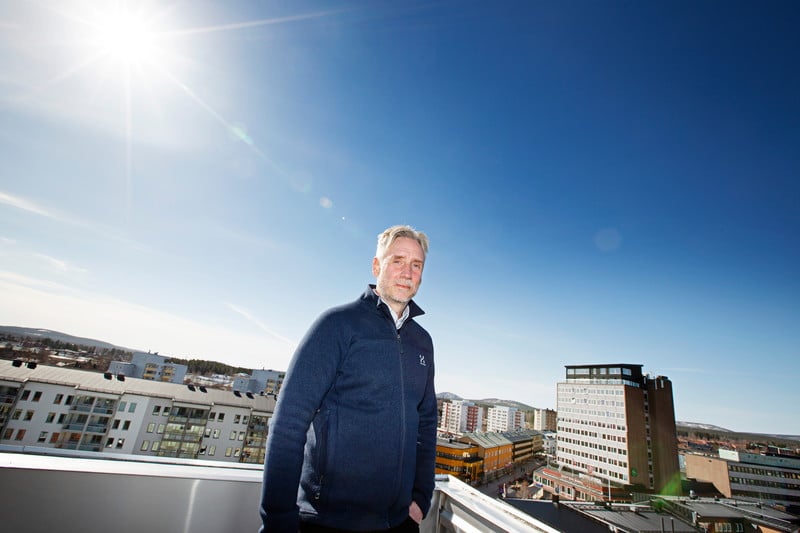“We are in the midst of a green transition that is historic. We look outwards and attract companies from all over the world. We are building a society that is sustainable both ecologically and socially, with sustainable living environments where people can thrive and develop.”
The words come from Mats Berg, head of the business community and CEO of Bodens kommunföretag AB. During the years when the municipality of Boden was steering towards what we are now starting to see the effects of, he was the head of the municipality.
Today, he can enjoy a bit of anti-jante, and not only believe, but actually know, that Boden is a force to be reckoned with.
Europe’s first new-build steel plant in over 50 years, and the world’s largest hydrogen plant, is planned
just in Boden. That this is happening now is no coincidence. Nor that a unique ecosystem of other business ventures and establishments is emerging here. The long-term plan focusing on electricity-intensive industries in the smart green, in a municipality that creates opportunities, is starting to bear fruit.
“Our geographic location is right, and we have staff with extensive knowledge of complex systemic issues at a very high level. In principle, we have the answer to the environmental problem in a scalable model and have been planning a large establishment for a long time,” says Mats Berg.
 “We have worked hard on a long-term strategy, invested and were convinced that we have such a strong product that we are interesting to the outside world.”
“We have worked hard on a long-term strategy, invested and were convinced that we have such a strong product that we are interesting to the outside world.”
Photo Mats Engfors, Fotographic.
The municipality of Boden has managed to capture more issues than ever before in modern times, with a timetable that would seem impossible to many. This has required an ability to be both quick-witted and thoughtful. It also required an organization with the willingness and permission to think outside the box when the big starting gun went off.
“We gathered a number of key players from administrations and companies and began to crystallize what we had to do and find an organization for it. The outside world and H2 Green Steel are not directly adapted to municipal annual cycles,” says Mats Berg with a smile.
Bodenxt
Bodenxt became the collective name for the development organization that has been built up in parallel with the municipal line organization. Transversely, Bodenxt cuts across traditional administrative and corporate boundaries with five sub-projects:
- Industry
- Live and stay
- Skills supply
- Above ground infrastructure
- Underground infrastructure.
Rapid positive crisis organization
This Boden model is built as a positive crisis organization for quick reconciliation and informal decisions. With the support of municipal decisions and permits and an active civil society and business community, Boden will achieve about 20 years of development in just a few years.
“It requires us to work five to seven times faster and we have to be smarter. Neither is more important than the other. Everything must move at the same pace. A strength here in Boden is that there is great understanding and insight that this is how we need to work,” explains Mats Berg.
He stresses the importance of including all the elements of the whole, from housing, a vibrant city center and rural development to skills provision, schools and reception services for both individuals and businesses.
TIPS! If you want some interesting summer reading in the hammock, you can read about the background and spirit here in Boden in the Bodenxt supplement of Dagens Industri.